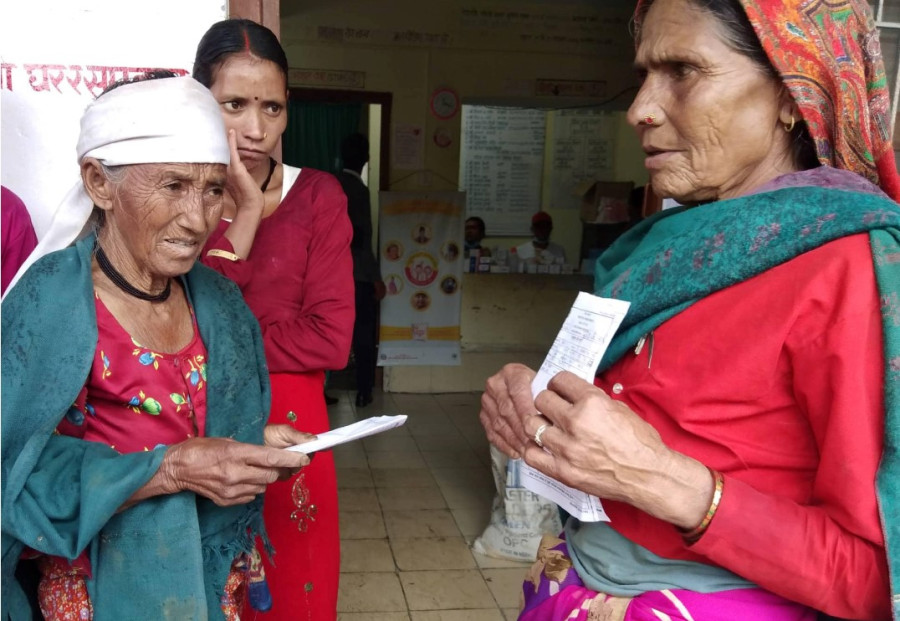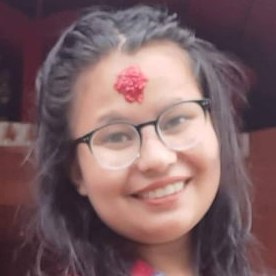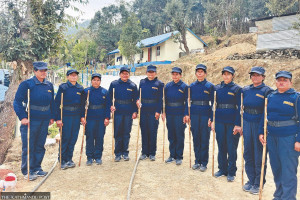Sudurpaschim Province
Women in remote areas lack access to health services
Cases of Urinary Tract Infection, Uterine Prolapse, sexual diseases and other reproductive health issues are prevalent in remote areas
Tripti Shahi
Seventy-year-old Belu Chad of Shivanath Rural Municipality-2 in Baitadi is not in the pink of her health. She has been living with Uterine Prolapse for more than four years now, and suffers from severe pain in her lower abdomen. Because of her illness, she spends most of the time on her bed.
The situation of 50-year-old Gaumati Saud in Shivanath Rural Municipality-1 is no different. She, too, suffers from Uterine Prolapse and bleeds from her genitals frequently.
In the rural municipality, there are many others like Belu and Gaumati who suffer from this condition, but they are unable to receive treatment.
Kaushila Saud, a resident of Shivanath-2, said women in remote areas are not able to receive treatment for Uterine Prolapse, as there are no hospitals in or near their villages.
“Women here don’t have the money to seek treatment in city areas. Since there are no hospitals nearby, most women cannot get the treatment that they need,” Saud said.
Uterine Prolapse is a condition wherein the pelvic floor muscles and ligaments stretch and weaken to a point where it fails to provide enough support to the uterus. It mostly affects women who have had multiple vaginal deliveries.
Most of the women in rural areas do not talk about their reproductive health conditions. Their only option is to occasionally receive minor treatment from health camps.
The District Health Office (DHO) had recently organised a two-day integrated reproductive health camp in remote Shivanath and Pancheshwar rural municipalities for free. According to Dilliraman Joshi, supervisor of the Family Planning Section of the DHO, 254 women received treatment from the health camp at Sharmali in Shivanath, whereas 255 women were treated in the health camp organised at Kulau in Pancheshwar.
“Women were found suffering from Urinary Tract Infection, Uterine Prolapse, sexual diseases and other reproductive health issues,” said Joshi. “Through the health camp, we succeeded in providing treatment to many women.”
Nisha Joshi, chief at the DHO, said the camp was fruitful to identify many women’s reproductive problems and cure them on time.
“We will also help women in critical condition to get their treatment,” Joshi said.
To this day, many people in remote areas have to rely on health camps to get treatment from medical specialists. The residents of Shivanath and Pancheshwar have to cross Mahakali River and reach India for treatment. As treatment in India can get expensive, a majority of impoverished people living in remote areas have been forced to live with diseases.
Hemant Singh Saud, a health assistant who has been deployed as a coordinator of the health camp, said that all stakeholders should make efforts to provide specialist services to people in remote areas.




 8.65°C Kathmandu
8.65°C Kathmandu















